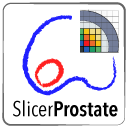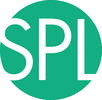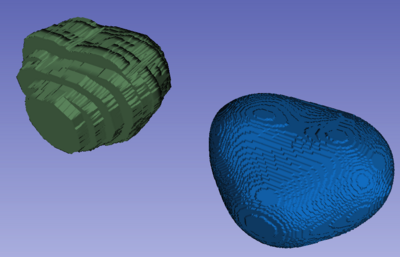Documentation/4.5/Modules/SegmentationSmoothing
|
For the latest Slicer documentation, visit the read-the-docs. |
Introduction and Acknowledgements
|
Module Description
| This module can be used to generate a smooth surface segmentation for datasets that were segmented on images with large slice thickness, leading to "staircase" effect. This module was motivated by the need to generate smooth segmentations for prostate MRI images, which typically have high in-plane resolution (0.5mm) relative to the slice thickness (3mm).
The module operates by resampling the input to isotropic voxel resolution and applying Gaussian smoothing to the resampled image. Note that the resulting image will have larger size than the input. |
Use Cases
- MRI-ultrasound fusion biopsy of the prostate (primary)
- therapy planning
- treatment response assessment
Tutorials
None at this time ... stay tuned!
Panels and their use
- Input label: input segmentation image
- Output label: smoothed segmentation image
- Label to process (optional): the module operates on only one label. In the cases when multiple labels are present in the input, they will be thresholded, and the result will be smoothed. If label to process is specified, thresholding will be applied to process only the specified label.
Similar Modules
References
[1] Fedorov A, Khallaghi S, Antonio Sánchez C, Lasso A, Fels S, Tuncali K, Neubauer Sugar E, Kapur T, Zhang C, Wells W, Nguyen PL, Abolmaesumi P, Tempany C. (2015) Open-source image registration for MRI–TRUS fusion-guided prostate interventions. Int J CARS: 1–10. Available: http://link.springer.com/article/10.1007/s11548-015-1180-7.
[2] Fedorov A, Nguyen PL, Tuncali K, Tempany C. (2015). Annotated MRI and ultrasound volume images of the prostate. Zenodo. http://doi.org/10.5281/zenodo.16396
Information for Developers




